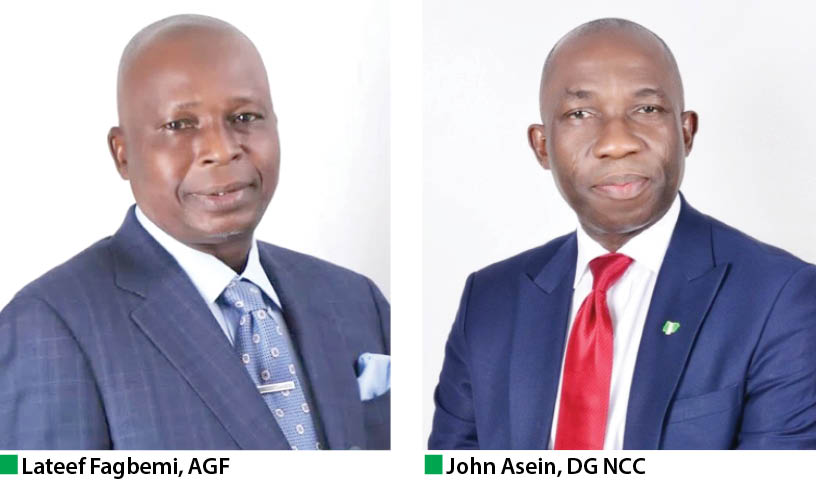The high level of conversion of project proposals from potential investors in Nigeria by staff and management of Nigeria’s ministries, departments and agencies (MDAs) is impacting developmental initiatives, experts say.
The rampancy of this malaise, which borders on plagiarism and copyright infringement, has given Nigeria the wrong image of being the graveyard of ideas.
Individuals and organizations, both local and international have brought proposals on advanced management of critical areas such as railway modernization, mass housing, road construction, emergency healthcare, fire safety, environmental sanitation, renewable energy, fast track judiciary, correctional centres, ocean management, forestry, among others, but such projects have been left to die or mismanaged by hijacking interlopers in government agencies.
This is not the case in other fast-developing countries like the United Arab Emirates (UAE); Qatar, China, Saudi Arabia, Malaysia and others where copyrights of potential investors are respected and protected under the law.
- We’ll Tackle Liquidity Challenges In Power Sector, FG Assures Investors
- NNPC recorded 9,000 infractions on pipelines in one year – Kyari
Owners of diverted projects groan years after
Original innovators, whose ideas were converted by some people in position of authority, continued to wait for the courts to provide remedy many years after their cases arose.
They believe asking them to go to court does not guarantee a solution as they wait endlessly without a tangible result.
Some of them say greater systemic reorientation and reforms are required.
Instances of alleged infringements
In 2010, a Nigerian businessman, Roland Okeke, who is the MD of Powergold Industries Ltd, nursed the ambition of introducing modern sweeping and waste management arrangements to the FCT with compactors and sweeping machines he hoped to procure from his Ukrainian partners.
The project was to commence under the Abuja Environmental Sanitisation Joint Venture Project, but was marred by controversies after the Federal Capital Authority allegedly handed over the project to another firm.
Before the project was allegedly diverted from him, he had procured incinerating facilities to convert waste to energy and domestic materials like rugs and carpets.
He said, “I hold the blueprint of that project which I started under the administration of Aliyu Moddibo Umar as the FCT minister and it was actualized under Adamu Aliero.
“I had brought in 40 compactors that are lying waste now; I had arrangements to convert waste to rugs and carpets; it was a full package for the FCT and I told them how they would realise the money as they don’t need to bill people with N100,000 or so for this. At just N5,000 or N10,000 bills, people would see results and would be happy to pay,” he said.
Similarly, the management of a foreign-based company, Platinum Parking Management Services (PPMS) accused the FCTA of diverting their proposal for the Abuja Park and Pay project to sanitise the roads and generate revenues for the government, alleged that the programme was taken away from him and concessioned to different companies after he had invested billions of naira to train staff, map out routes and put logistics in place.
“I came back to invest in the project because of the call by President Olusegun Obasanjo’s administration to Nigerians in diaspora to return home and contribute to national development,” one of the directors said.
When contacted on the allegation by the MD of Powergold Industries, Mr Roland Okeke, an official of the FCT Administration, who craved anonymity because he was not authorized to talk on such issue, said it was better to approach the department that might be directly involved, the Abuja Environmental Protection Board (AEPB).
However, the Public Relations Officer of the Board, Mrs Janet Pane, said she was not aware of such case.
Elsewhere, the managing director of Donnington Nigeria Ltd, Mohammed Sani bemoaned the alleged diversion of his proposal on the implementation of the Advanced Cargo Declaration/Cargo Tracking Note Regime for crude oil shipment in 2021.
According to him, after his proposal was approved, he was surprised that the Federal Ministry of Transportation and the Ministry of Petroleum brought in other consultants for the same project.
In his claim, which was filed before a Federal High Court in Abuja, Sani averred that on January 19, 2021, he wrote a proposal through the office of the Chief of Staff to the President for the re-introduction of the advanced cargo scheme to reduce crude oil theft in Nigeria.
Sani averred that following the Chief of Staff’s letter dated 4th May 2021, conveying the president’s approval for the re-introduction of the scheme and relevant approvals from the various ministries and agencies, the firm spent over $3 million for the purchase of equipment and items, set up a portal at $370,000, engaged foreign partners from the UK, UAE and recruited staff through a human resource company.
Sani, further averred, “After complying with all the requirements, the Plaintiff/Applicant (Donnington Nigeria Ltd) observed that the Ministry of Transportation was trying to introduce another company to render similar services.”
The case is still pending in court.
Similarly, the Managing Director and Chief Executive Officer of Hugiano Embold Solutions Ltd, Kenneth Ibe-Kalu, is another Nigerian who claimed to have brought a multi-billion-dollar project on highway concessioning into the country but was allegedly short-changed.
According to him, he struck a strategic partnership with the Federal Ministry of Works and Housing and the Infrastructure Concession Regulatory Commission to actualise his concept named the National Transformation Tourist Centres (NTTCs), which the agencies renamed the Highways Development and Management Initiative (HDMI).
He said before the project was “hijacked”, he raised the initial $15 billion required to equip the centres with many departments such as hotels, pharmacy departments, commercial towing van centres, car washes, bedding highway clinics, farmers markets, tourist centres, fast food centres, supermarkets, movie and music marketing centres, children’s parks, vehicle parks, mini banks, security and rapid response agencies, National Orientation Agency help desk and other support services.
He said the facilities will be cited as part of the national development vision for the construction of tourist centres along corridors of all federal roads in Nigeria to be sited every 100 kilometres along the 34,123 kilometres length of federal roads in Nigeria with a total of 340 centres.
After the project was converted by the federal government and divided into sections for other contractors, he approached the Federal High Court in Abuja on the grounds of alleged copyright infringement with a demand for the sum of N5 trillion in damages.
Although the Attorney General of the Federation and the Minster of Justice, Lateef Fagbemi (SAN) has joined his suit, the hearing has been slow.
The Managing Editor of Arise News, Christian Ojorovwu Ogodo, who designed and registered the quiz programme, ‘University Challenge’ with the Nigerian Copyright Commission (NCC) and presented it to the National Universities Commission (NUC) for Nigerian schools, was surprised to see the programme being aired on televisions by NUC and Zain Nigeria Ltd (now Airtel) four weeks after he made the presentation to the NUC.
His suit demanding the sum of N700 million in damages against the two organisations, which has been in various courts since December 18, 2009, is currently on appeal at the Supreme Court.
Copyright infringement symptom of failing system – Lawyers, experts
Lawyers and experts have described the menace of intellectual property theft and copyright infringement in Nigeria as a symptom of a failing system.
A director at the Equity Advocacy and founder of the Edoka Trauma Foundation, Ene Ede, described the phenomenon as a traumatizing calamity happening across the country where contents designed are not only unpaid for but being stolen.
She said the major challenge is the professional inadequacies of the National Copyright Commission (NCC); National Human Rights Commission (NHRC) and the National Orientation Agency (NOA) to confront the menace.
“This could lead to deaths; a lot of people are traumatized today because their intellectual properties were stolen and the thieves have not been punished,” she said.
The executive director of the Centre for Social Justice (CSJ), Eze Onyekpere Esq said the situation demands proactive actions by the courts as the only avenue for a remedy for the victims.
An Abuja-based lawyer, who does not want to be named because of the nature of cases he is currently engaged in, said the menace has to be addressed by the family where parents now encourage their children to cheat and even hire people to write examinations for them.
“Intellectual property is theft and punishable in any stable society, but in Nigeria, people develop ideas and submit to both government and private agencies and they are diverted.
“I was a victim when my friends and I some years ago developed a parliamentary debating competition to encourage debating in schools, and one of our partners said he knows a lady close to the Director General of the Copyright Commission. He gave the idea to this lady and she stopped picking up his calls. We visited severally and later we discovered she was close to a TV anchor who is now doing the same programme,” he said.
“When we were growing up, cheating in the classroom attracted severe punishment, but while we were in the university, it became the norm for parents to pay for their child to pass an exam.
“A child that you do that for tell me if he or she will ever see cheating and stealing as not a way of life?” he asked.
“We need to strengthen our laws and reform our judiciary to have the time within which to conclude cases in Nigeria to stop the tendency to ask people to go to court,” said Dayo Akinlaja (SAN), a former Attorney General and Commissioner for Justice in Ekiti State.
He added, “Beyond that, I believe there is a tinge of ignorance in this because people who do these things are unaware that there is a law against it.
“This particular feature of people stealing ideas is just too rampant, so there should be some sort of orientation and enlightenment to preach against it.
“We should do everything possible to improve our judicial system to ensure that cases conclude within a reasonable period, once people know that cases would not go beyond a maximum of five years before the trial court would give a decision, people would think twice before they abuse situations.”
Bring such cases to us – Copyright Commission
Reacting to the development, The Deputy Director, of Public Affairs of the National Copyright Commission (NCC), Mrs Ijeoma Egbunike said victims should approach the Director General of the commission, Dr John Asein for intervention.
He said a major challenge is that most people don’t know that they can write complaints to the commission for investigation and proper advice rather than just rush to court and have their cases messed up and delayed.
On the relevance of registration of intellectual properties, she said the owner automatically has the copyright of their work upon completion although registration gives them more edge when a dispute arises.
She said the new NCC Act 2022 has strengthened the punishment for offenders who could spend five to 10 years for infringements.

 Join Daily Trust WhatsApp Community For Quick Access To News and Happenings Around You.
Join Daily Trust WhatsApp Community For Quick Access To News and Happenings Around You.


